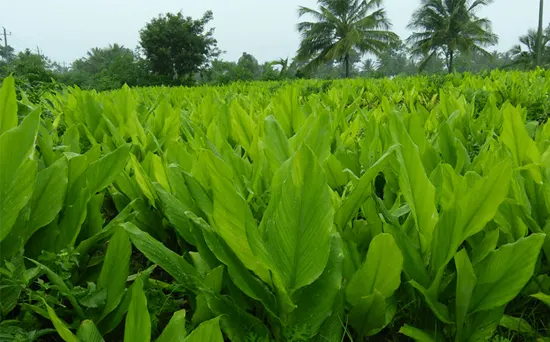Longvida® Exhibits Greater Improvements To Biomarkers
Longvida® Exhibits Greater Improvements To Biomarkers
Researchers at Central Michigan University have taken a closer look at Longvida Optimized Curcumin®. Previously, these researchers conducted amyloid binding work in vitro with promising results1-2. Recently published in the journal BMC Neuroscience, Maiti P et al compared standard, curcumin to solid lipid curcumin (Longvida).
The present study, “was designed to compare the effects of acute treatments of [65% curcumin] and/or SLCP™ [Longvida® with 20% curcumin], on anti-inflammatory activities, Aβ plaque loads, and neuronal morphology in different brain regions of 5xFAD mice.”3 This study indicates, “the low solubility in body fluids and rapid degradation after intestinal absorption limit the bioavailability of [unformulated] curcumin, reducing its clinical utility. However, the use of SLCP, a lipidated formula of curcumin, shows significant promise in providing greater neuroprotective effects. In the present study, we observed that SLCP tended to have greater affinity to Aβ plaques, compared to [unformulated] curcumin. Our findings suggest that the lipid bilayer of SLCP facilitates its permeability into the brain.”3

While it is known that many researchers have conducted both in vitro and in vivo work in both animals and humans, many studies have utilized chronic treatment to overcome the major obstacles of delivering therapeutically significant amounts due to poor solubility, instability in physiological fluids, and low bioavailability.3
In this study, Maiti and team brought to light additional research showing the benefits of acute treatment with curcumin in a murine model for either 2 (two) or 5 (five) days. This publication adds to previous research and finds Longvida® SLCP™ as a “potent, anti-amyloid and anti-inflammatory natural polyphenol”.3
“Interestingly, we achieved greater anti-inflammatory effects in the case of SLCP [Longvida] treatment, which, again confirmed that the SLCP facilitates permeability of curcumin across the blood brain barrier (BBB) … to a greater degree than [unformulated] curcumin.” They go on to conclude that SLCP provided greater neuroprotective effects compared to [unformulated] curcumin in 5xFAD mice.3 “Moreover, we have compared the permeability of curcumin in different cells, such as 7-DIV primary hippocampal neurons and N2a cells and found that SLCP tended to deliver more free curcumin into the cells than did [unformulated] curcumin.”
Furthermore, the researchers note that 5-days of treatment had greater impact than 2-days in both groups, suggesting that a longer duration can better optimize the tangible health benefits seen.
“Not only is it very exciting to see these results from Maiti P et al, but it is absolutely fantastic to have additional support for our previous research efforts on Longvida,” states Kristen Marshall, Marketing Coordinator, Verdure Sciences Sonya Cropper, VP of Innovation & Marketing at Verdure Sciences, stated “this publication highlights the potential impact Longvida (SLCP) has on various neurological measures, with valuable insight into the difference on permeability and specific activity between curcumin and solid lipid curcumin (Longvida®). The continued interest in curcumin from the research community will continue to bring a greater understanding on potential benefits, as well as the difference regarding various optimizing technologies.”
The key to the success of Longvida lies within the patented and proprietary Solid Lipid Curcumin Particle formulation, or SLCP™. This technology encapsulates the free curcumin in Longvida® in a tri-lipid matrix, allowing it to enter the bloodstream, and cross the blood brain and blood retinal barriers. †
† These statements have not been evaluated by the Food and Drug Administration. This product is not intended to diagnose, treat, cure or prevent any disease.
About Longvida®: Patented Longvida Optimized Curcumin® was developed by Verdure Sciences® in collaboration with UCLA neuroscientists with over ten years of bioavailability, efficacy, and safety testing. Longvida’s SLP™ formulation is able to reach target tissues offering efficacious levels of free curcumin at a low daily dose. Longvida® (US Patent 9192644, EP Patent 19933665; additional patents pending) is a registered trademark of Verdure Sciences®, Inc. SLP™ and SLCP™ are trademarks of Verdure® Sciences, Inc.
References:
- Maiti P et al. A comparative study of dietary curcumin, [Longvida®], and other classical amyloid-binding dyes for labeling and imaging of amyloid plaques in brain tissue of 5x-familial mice. Histochem Cell Biol. 2016 Nov. Vol 146(Issue 5): 609-625. EPub 2016 Jul 12. DOI: 10.1007/s00418-016-1464-1
- Maiti P et al. Comparative neuroprotective effects of dietary curcumin and Solid Lipid Curcumin Particles [Longvida®] in cultured mouse neuroblastoma cells after exposure to Aβ42. Intl J Alz Dis. 2017 Apr 16. Vol 2017(Article ID 4164872): 13 pgs. DOI: 10.1155/2017/4164872
- Maiti P et al. Solid lipid curcumin particles provide greater anti-amyloid, anti-inflammatory and neuroprotective effects than curcumin in the 5xFAD mouse model of Alzheimer’s disease. BMC Neurosci. 2018 Feb 23. 19(7). DOI: 10.1186/s12868-018-0406-3
Researchers at Central Michigan University have taken a closer look at Longvida Optimized Curcumin®. Previously, these researchers conducted amyloid binding work in vitro with promising results1-2. Recently published in the journal BMC Neuroscience, Maiti P et al compared standard, curcumin to solid lipid curcumin (Longvida).
The present study, “was designed to compare the effects of acute treatments of [65% curcumin] and/or SLCP™ [Longvida® with 20% curcumin], on anti-inflammatory activities, Aβ plaque loads, and neuronal morphology in different brain regions of 5xFAD mice.”3 This study indicates, “the low solubility in body fluids and rapid degradation after intestinal absorption limit the bioavailability of [unformulated] curcumin, reducing its clinical utility. However, the use of SLCP, a lipidated formula of curcumin, shows significant promise in providing greater neuroprotective effects. In the present study, we observed that SLCP tended to have greater affinity to Aβ plaques, compared to [unformulated] curcumin. Our findings suggest that the lipid bilayer of SLCP facilitates its permeability into the brain.”3

While it is known that many researchers have conducted both in vitro and in vivo work in both animals and humans, many studies have utilized chronic treatment to overcome the major obstacles of delivering therapeutically significant amounts due to poor solubility, instability in physiological fluids, and low bioavailability.3
In this study, Maiti and team brought to light additional research showing the benefits of acute treatment with curcumin in a murine model for either 2 (two) or 5 (five) days. This publication adds to previous research and finds Longvida® SLCP™ as a “potent, anti-amyloid and anti-inflammatory natural polyphenol”.3
“Interestingly, we achieved greater anti-inflammatory effects in the case of SLCP [Longvida] treatment, which, again confirmed that the SLCP facilitates permeability of curcumin across the blood brain barrier (BBB) … to a greater degree than [unformulated] curcumin.” They go on to conclude that SLCP provided greater neuroprotective effects compared to [unformulated] curcumin in 5xFAD mice.3 “Moreover, we have compared the permeability of curcumin in different cells, such as 7-DIV primary hippocampal neurons and N2a cells and found that SLCP tended to deliver more free curcumin into the cells than did [unformulated] curcumin.”
Furthermore, the researchers note that 5-days of treatment had greater impact than 2-days in both groups, suggesting that a longer duration can better optimize the tangible health benefits seen.
“Not only is it very exciting to see these results from Maiti P et al, but it is absolutely fantastic to have additional support for our previous research efforts on Longvida,” states Kristen Marshall, Marketing Coordinator, Verdure Sciences Sonya Cropper, VP of Innovation & Marketing at Verdure Sciences, stated “this publication highlights the potential impact Longvida (SLCP) has on various neurological measures, with valuable insight into the difference on permeability and specific activity between curcumin and solid lipid curcumin (Longvida®). The continued interest in curcumin from the research community will continue to bring a greater understanding on potential benefits, as well as the difference regarding various optimizing technologies.”
The key to the success of Longvida lies within the patented and proprietary Solid Lipid Curcumin Particle formulation, or SLCP™. This technology encapsulates the free curcumin in Longvida® in a tri-lipid matrix, allowing it to enter the bloodstream, and cross the blood brain and blood retinal barriers. †
† These statements have not been evaluated by the Food and Drug Administration. This product is not intended to diagnose, treat, cure or prevent any disease.
About Longvida®: Patented Longvida Optimized Curcumin® was developed by Verdure Sciences® in collaboration with UCLA neuroscientists with over ten years of bioavailability, efficacy, and safety testing. Longvida’s SLP™ formulation is able to reach target tissues offering efficacious levels of free curcumin at a low daily dose. Longvida® (US Patent 9192644, EP Patent 19933665; additional patents pending) is a registered trademark of Verdure Sciences®, Inc. SLP™ and SLCP™ are trademarks of Verdure® Sciences, Inc.
References:
- Maiti P et al. A comparative study of dietary curcumin, [Longvida®], and other classical amyloid-binding dyes for labeling and imaging of amyloid plaques in brain tissue of 5x-familial mice. Histochem Cell Biol. 2016 Nov. Vol 146(Issue 5): 609-625. EPub 2016 Jul 12. DOI: 10.1007/s00418-016-1464-1
- Maiti P et al. Comparative neuroprotective effects of dietary curcumin and Solid Lipid Curcumin Particles [Longvida®] in cultured mouse neuroblastoma cells after exposure to Aβ42. Intl J Alz Dis. 2017 Apr 16. Vol 2017(Article ID 4164872): 13 pgs. DOI: 10.1155/2017/4164872
- Maiti P et al. Solid lipid curcumin particles provide greater anti-amyloid, anti-inflammatory and neuroprotective effects than curcumin in the 5xFAD mouse model of Alzheimer’s disease. BMC Neurosci. 2018 Feb 23. 19(7). DOI: 10.1186/s12868-018-0406-3
About Verdure Sciences®:
Verdure Sciences manages ingredient innovation throughout the integration of supply network, production, and research platforms. With an expanding pipeline of proprietary, standardized botanical ingredients supported by pharmacokinetic, pharmacodynamic, and clinical research profiles, we work toward our unified vision to offer safe, effective ingredient solutions. Verdure Sciences® is a registered trademark of Verdure Sciences®, Inc.
For our most current patent and trademark information, please visit: https://vs-corp.com/ip/ | https://vs-corp.com for more information
About Verdure Sciences®:
Verdure Sciences manages ingredient innovation throughout the integration of supply network, production, and research platforms. With an expanding pipeline of proprietary, standardized botanical ingredients supported by pharmacokinetic, pharmacodynamic, and clinical research profiles, we work toward our unified vision to offer safe, effective ingredient solutions. Verdure Sciences® is a registered trademark of Verdure Sciences®, Inc.
For our most current patent and trademark information, please visit: https://vs-corp.com/ip/ | https://vs-corp.com for more information


